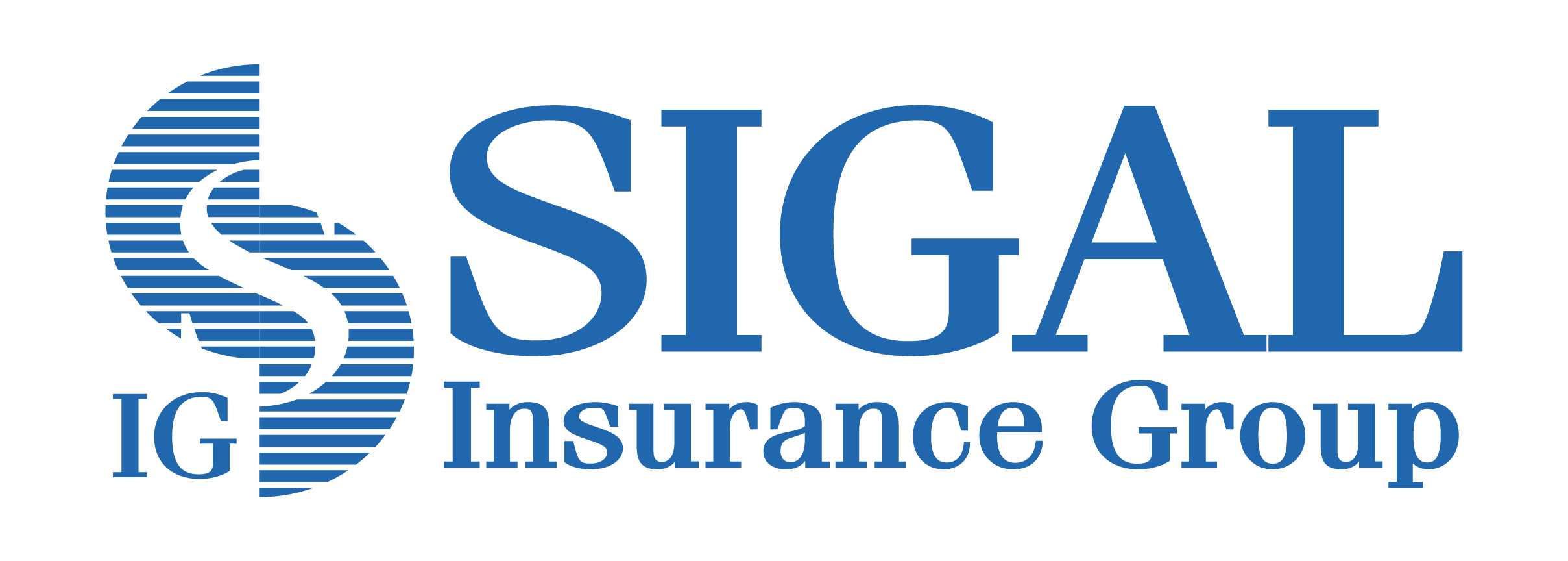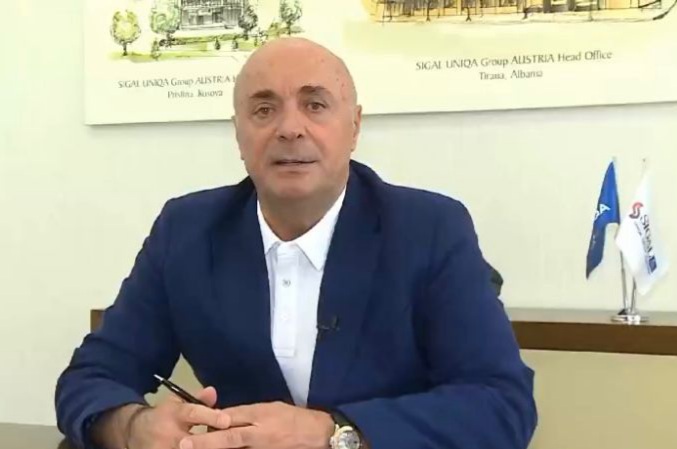Could we start by discussing the initial vision, understanding, and strategy when SIGAL was founded back in 1999?
In 1999, following the liberalization of the Albanian insurance market, I thought my job would be Insurance. I was lucky enough to create the Marine Insurance Department in the first Albanian Insurance company. The law enabling this liberalization was passed in 1996, and it was a challenging period since the only insurance company then was state-owned, where I was employed.
I originally come from a maritime background. I was a sea captain, later I graduated in law and then became the General Director of the largest insurance company in Albania, Kosovo and North Macedonia. I spent about ten years in the merchant fleet and military navy. I started my career in 1980 and resigned from the navy in 1992 to establish a marine insurance department within the state-owned insurance company. In the navy University in Vlore, we were also trained in insurance, a concept largely unfamiliar to most Albanians at the time. Only vessels traveling internationally were insured, and our school prepared us for both maritime and insurance roles.
The Albanian Navy University was one of the best universities, whose diplomas were recognized all over the world. At one point, I was the first officer for a 6,000-ton vessel, named Scanderbeg. Knowing marine insurance gave me a comprehensive understanding of the industry; if you understand insuring a vessel, you understand insurance at large. A vessel, in many ways, is like a small country on the sea, with its own flag, leadership, and crew.
I continued in the insurance sector until 1997 Albania had just opened up from communist isolation and during this period I was lucky enough to attend several trainings to gain experience with some of the largest insurance companies globally. By 1998, I decided, along with friends I had made in London during the training, to establish a private insurance company in Albania. They warned me about the challenges, but I responded confidently, saying, “I’m a captain; I’ve navigated rough seas and for me, working on the land is simple. I also graduated from the University of Tirana as a lawyer, and I said I can handle this.”
Upon returning, I prepared the necessary paperwork with my partners, including local shareholders. It was difficult to find shareholders since Albania was emerging from communism, and people knew little about insurance. Under communism, it was believed that the state provided everything, although, in reality it did not. After a year of preparation, I obtained a license, and we started operations with a team of five, who were my friends who had worked together at the insurance state company. Today, our company operates across three countries—Albania, Kosovo, and North Macedonia—with over 2,000 employees.
In 1981, as a young man in the merchant fleet, I considered staying in Italy after my first trip outside Albania. I spoke to my father, who told me he supported my decision as long as I did not leave him behind with the consequences it could have from the communist regime. Realizing the importance of family, I decided to return to Albania and continue my journey there.
Penetrating the insurance market was challenging because insurance was relatively unknown in Albania and the Balkans. Insurance penetration in the region is still low compared to other parts of Europe and the United States. However, I believe there’s significant growth potential if governments support the industry by encouraging the development of the non-banking financial industry. This is backward in the Balkans, and can only be developed with excellent human expertise and the products that the insurance market offers throughout Europe. But the lack of legal support has left this industry underdeveloped. I think the future in this industry is good: I say that this industry has an important mission, the creation of an independent person.
In 2003, our company received its first international investment from the American Enterprise Fund. This partnership was invaluable; they provided not just funds but essential operational expertise. The CEO of the Fund joined our board and encouraged us to make strategic plans. It was challenging initially because, unlike my company, most Albanian businesses lacked experience with shareholder-based structures and viewed profits as daily cash earnings. I had to explain that funds collected from policyholders were meant for claims, not immediate distribution.
With the Fund’s support, we expanded our operations to Kosovo and North Macedonia, obtaining licenses for life and non-life insurance, as well as private pension funds in Albania. UNIQA, a prominent shareholder, joined us, and we built a strong team. Our market share has consistently remained around 30%, despite increased competition. Our success lies in the creativity and dedication of our team, constantly innovating to offer new products and services to clients.
As the first company in Albania to embrace digitalization, we launched online sales over a decade ago and developed tools like an app for reporting health claims and telehealth services. With telehealth, our policyholders, including foreign visitors, can consult a doctor 24/7, with a modern service via phone for as little as $50 per year. We also launched a web-based platform, SIGAL Live, allowing Albanians and tourists to view live streams from various cities across Albania.
We pride ourselves on educating people about insurance by continually offering new products rather than simply selling policies. For example, we were the first to provide health insurance policies covering anti-tumor treatments and introduced a “Life Plus” product that provides up to €1 million for clients facing serious illnesses.
Our company has been a leader in ensuring major infrastructure projects in Albania, partnering with top-tier European reinsurance companies. During the earthquake, we quickly disbursed funds to affected clients, strengthening their trust in us.
Beyond business, SIGAL has contributed to cultural and community development. We sponsor the SIGAL Orchestra, which performs across Albania, Kosovo, and North Macedonia. We also launched the first Albanian audiobooks, now 100,000 Albanians around the world listen to Albanian books for free. We support sports, particularly through sponsorship of Albania’s national football team and the SIGAL Prishtina basketball team, which has been a 20-time champion in Kosovo.
We also operate a mobile clinic, staffed by top doctors, to provide free health services to remote areas. This initiative allows residents in rural zones to receive medical checkups that would otherwise be challenging to access.
Our story is one of resilience, growth, and continuous innovation. We strive to be more than just an insurance provider by fostering trust, providing new solutions, and giving back to the communities we serve.
What role do you see for US investors, like the Albanian-American fund that acquired a 13.3% stake in SIGAL UNIQA in 2003, in supporting the evolving insurance sector in Albania as the economy grows and demand for insurance increases?
Albania, in my opinion, is one of the best countries in Europe, perhaps even the world—not simply because I am Albanian but because of its unique qualities. However, politically, Albania has not always been fortunate, especially due to 50 years under communism. As someone who has lived nearly equally under communism and democracy, I understand the profound impact of that era. When I observe North Korea, I can honestly say that Albania experienced a similar, if not harsher, environment during those years. Communism affected Albania deeply, damaging people’s mentality, way of life, and society as a whole.
People who spent their entire lives in that era may find it difficult to criticize it openly because acknowledging that it was terrible would be akin to saying their lives were wasted. Having experienced both systems, I can see the contrasts clearly. Although Albania still retains some remnants of that past, it has also changed dramatically. Albania today is truly a beautiful and welcoming country, possibly one of the best places to live. I have traveled extensively, and I recall reading something interesting from a former prisoner’s memoir. The author mentioned that “the only real enemy of Albanians is themselves,” meaning we sometimes hold ourselves back. But in truth, Albania is a wonderful place for people who choose to live here, as many foreigners who visit quickly come to appreciate.
The country is now open for investment, and while some regulations must be followed, working with reliable Albanian partners can help businesses grow rapidly. There are many opportunities for investment across various sectors in Albania. For those with expertise in the financial sector, this is an ideal time, particularly in areas like the non-banking financial industry, insurance, investment funds, pensions, and the development of a stock exchange. The banking system is well-regulated, but the non-banking sector is still emerging and holds significant potential.
Albania is now a promising place for those who know how to navigate these opportunities, as there is considerable potential across the country for growth and development.
Do you envision expanding into other countries and growing in numbers over the next five to ten years?
Looking to the future, my goal is for our income to triple over the next five years compared to what we earn today. I believe this growth is achievable. Our business has been growing steadily, with an annual increase of 10–20%, but in a region like Albania and the Balkans, this rate is modest. Ideally, we should aim for growth of 50–100% per year, as the opportunities are there, but the products remain very affordable.
Citizens are unprepared to be free, because if they have home insurance, health insurance, car insurance, and a private pension, it seems simpler, they can be free citizens and challenging politics.
For instance, insuring an apartment in Albania costs only 50 euros per year. Comprehensive “gold” health insurance, which allows coverage for treatment and surgeries worldwide, costs between 1,500 and 2,000 euros per year. This policy covers up to 500,000 euros in expenses.
Recently, I met two professors originally from Korça who had spent 30 years working in the United States. They told me they wanted to retire in Albania, where they feel the quality of life is better. However, they were concerned about healthcare quality here. I asked them how much they paid annually for healthcare in the US, and they said around $10,000. I explained that for half that amount—5,000 euros—they could have top-tier health insurance here, including a dedicated ambulance service nearby and constant health monitoring.
Our challenge now lies in improving our marketing efforts to make more people aware of these opportunities. We have the right products, but not everyone knows they are available. Addressing this will help us reach and serve more people effectively.
Interview by Global FDI Reports-In Partnership with USA TODAY



